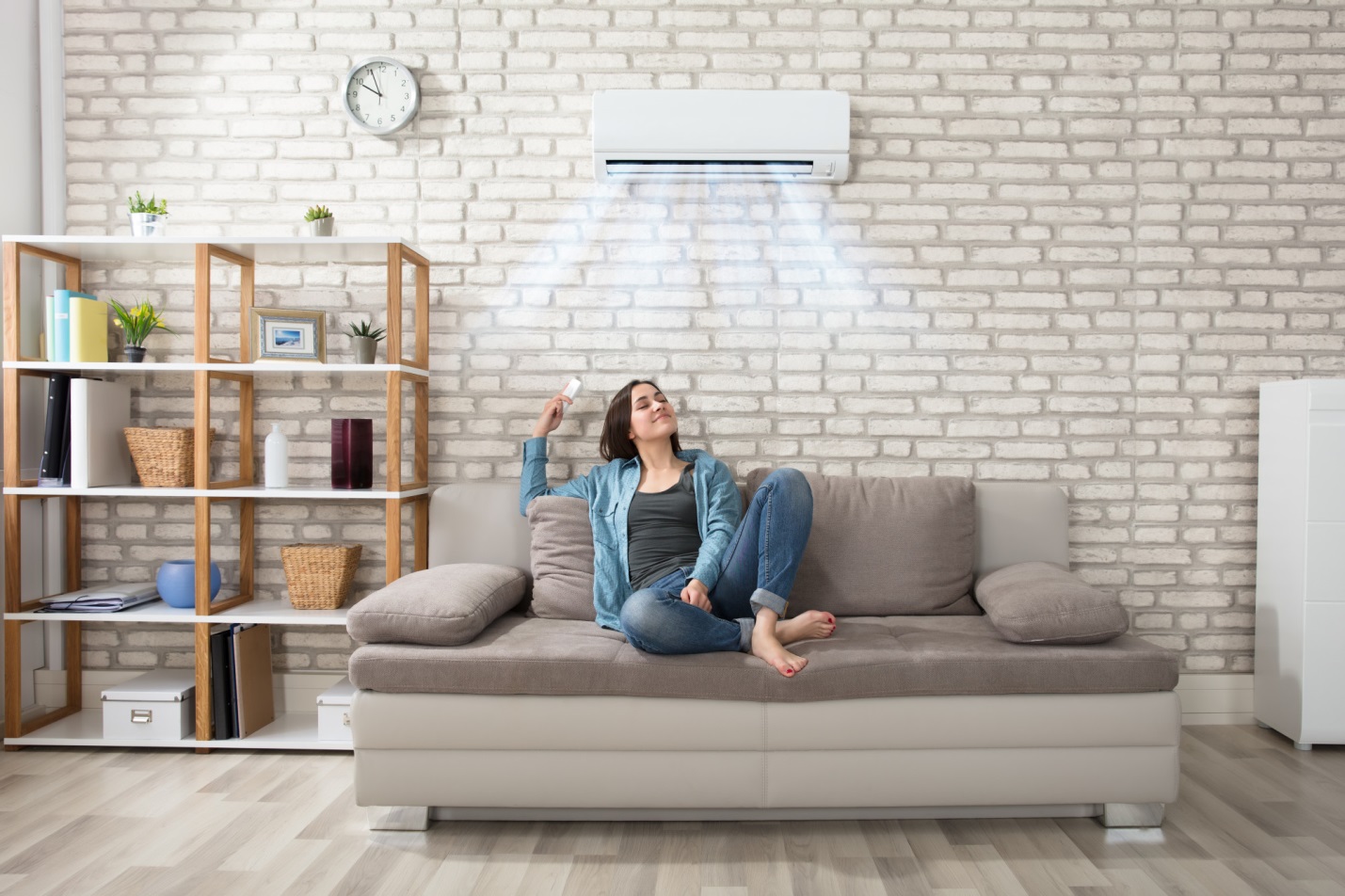Phoenix, Las Vegas, and Riverside, Calif., are the U.S. cities with the most days above 99 degrees each year.
The summer months such places can become unbearable without a proper AC unit. It’s also why many people choose to install AC units into their homes. However, a noisy air conditioner can spell bad news for you, especially in the summer.
Is your air conditioner making noise? Or, are you hearing a different kind of noise from your air conditioning unit? If your air conditioner is making a pulsating noise or other, it may be time to get it checked.
Below, we have a list of strange air conditioner noises and their probable causes.
1. Is Your Air Conditioner Making Noise and Why Is It a Bad Thing?
No matter how high the quality of your air conditioner, a time will come when it will break down. Often, it begins with weird noises. Strange, unusual noises are often your first signs of a breaking AC.
However, an air conditioner making noise isn’t enough to find and fix the problem. Since an AC unit has many components, it also has many possible issues. Different problems cause different kinds of noises in your air conditioning unit.
Keep reading for weird AC noises that would need fixing.
2. Humming Noise
Is your air conditioner making loud buzzing noises? Or, is your air conditioner making humming noises? While it’s normal for an AC unit to emit a very soft humming, a loud humming noise isn’t ordinary. A humming noise can signal a variety of maintenance issues.
One common cause of noises is loose parts. Those and refrigerant piping could be causing vibration, and thus, the sound.
Often, this kind of sound isn’t very serious. However, that doesn’t mean you should start ignoring it. The longer you leave this issue unchecked, the bigger the maintenance problem can be.
It’s also possible that your motor is creating the humming noise. For this issue, all you need is to apply lubrication. Do this at the beginning of each summer to avoid the humming issue.
Humming noises may come from coil finds if they get bent. A fin comb can fix the problem with ease. With it, you only insert the bent coil fins between the teeth of the comb and then slide to straighten.
3. Buzzing Noise
A buzzing noise from your outside unit might mean a few different problems. You could have loose parts including fan blades and/or outdoor fan motor. It might also mean that debris is in the outdoor or indoor unit.
A buzzing noise might also mean that you only need to change your air filter. Your blower might be out of balance or it’s going bad. If buzzing is present, it might also mean your condenser coil needs changing.
Electrical problems can be the cause of a buzzing noise. Copper lines from outside going inside may be rubbing against something. To see which of these problems you have, consult an air conditioning repair service company.
4. Clicking
Clicking noise at the startup and shutdown of the unit is normal. However, you have a problem if you hear a clicking sound that is either constant or getting faster from your AC. Depending on the situation, you may fix the problem or you may need a professional.
What should you do if the outside unit is creating a clicking noise while it is running? Listen if the clicking noises get faster and closer together as the AC turns on. If that is the case, there is only a small obstruction in the outdoor unit’s fan.
All you need to do is to remove the obstruction. You can then continue to run your AC. If the unit won’t start and you hear steady clicking noises, it’s an electrical problem.
This needs correction before you can turn on your AC unit. It could mean you have a faulty thermostat. It might also signal a capacitor or compressor problem.
5. Squealing
For some people, a squealing noise can be irritating to the ear. If you hear it from your AC, you could get trapped in a limbo where you must endure the noise for the comfort of cool temperatures. If your central air conditioner is making a loud squealing noise, you need to get it fixed.
The most likely cause for momentary squealing sounds is a misaligned or worn down fan belt. In some AC units, there’s a fan belt that connects the fan to the motor. At times, the belt can wear down or misalign, causing the squealing noise.
While you can continue to use the unit still, it’s not recommended. Continuous use can lead to the belt breaking. You should have the belt replaced before you’re left out of cool air.
Newer units may emit high-pitched squealing noises as well. Since newer units don’t use a belt system, the noise won’t be from a belt. Instead, it will come from the bearings for the motor of the condenser fan.
If you hear squealing from your outdoor unit, it means you need to replace your motor. Do not use your air conditioner if it is a newer unit and it’s squealing. Instead, contact a professional repairman right away to help fix the problem.
6. Screeching
Is the outside of your air conditioning making loud noises when you turn it on? If you hear a screeching noise like metal on metal, turn it off right away. In this situation, it means the fan motor bearings need replacement.
Another possible reason is that you may have a refrigerant leak. This issue is hazardous to you and your family so it calls for immediate attention. A high-pitched sound in your AC unit may be the effect of high internal pressure in your compressor.
The unit should turn off on its own to protect you from a hazardous situation. The screeching sound may persist until the AC unit shuts off. If you must run your AC, you can but you shouldn’t wait too long to get it fixed.
7. Hissing + Bubbling
Hissing noises from your air conditioner spell bad news. Like many of the weird noises we’ve discussed above, hissing can stem from a variety of problems. The first step to fixing it is to determine where the hissing is coming from.
An internal leak from a compressor valve could cause this. Since it helps with the pressurization of the refrigerant gas, the valve leak needs instant repair. If you wait too long, the problem can get worse.
If it isn’t an internal valve in the compressor, it could be the compressor that’s causing the hissing sounds. This means there’s too high a pressure inside the compressor. The light hissing can turn into screeching later.
If you hear hissing accompanied by a bubbling noise, you may have leaky refrigerant lines. This happens because the refrigerant is under pressure. Have a professional check to confirm and fix this problem.
Note that smaller, shorter hissing noises are normal operational sounds. These will often last for several seconds only before they go away. You could hear this from the expansion valve or in the ductwork at the start of a new cycle.
8. Rattling, Banging, or Clanging
Let’s say it’s hot out and you turn on your AC to relieve yourself of too much warmth. As your outdoor unit runs, you hear a clanging noise from it. However, you don’t hear the noise when the thermostat gets turned to fan.
This means that the outdoor unit’s fan is hitting an obstruction. It could also mean that the fan got loose from the mount and it’s hitting the cage around it when it spins. Don’t continue to run your AC until you get this kind of problem fixed.
Often, most rattling or chattering noises come from clogged twigs or leaves in the system. Also, many rattling noises are the result of loose screws in and around the unit. It’s easy to fix this with a few turns of the right screwdriver.
It’s also possible that the electrical contractor in the equipment is making the chattering sound. If this is the case, it can damage other components. If you can’t find obstructions or debris in your unit, this may be the culprit.
Get Your Air Conditioner Back to Normal
Your air conditioner making noise is abnormal and is often a sign of minor issues. While you can still use your unit despite some of these sounds, don’t wait too long before you get the issue fixed. The sooner you find the problem and fix it, the better for your AC.
The longer you wait, the bigger the problem can become and the higher you may have to pay for repairs. The typical AC repair cost ranges between $163 and $548, according to Home Advisor. The costs even differ depending on what part needs repairing.
If you want your repair and maintenance costs to stay in the low hundreds, take good care of your AC unit.




